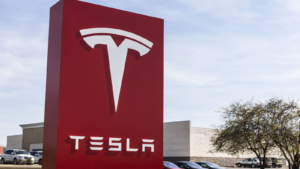3 Overvalued Tech Stock Darlings Primed for a Fall
It’s hard to think about selling a stock after the incredible first-half rally that’s beginning to carry into the second half. Undoubtedly, taking a bit of profit off the table while you’re up may be a wise idea, especially if you’re uneasy over slightly higher valuation multiples.
That said, with numerous firms seizing AI opportunities, profit-takers may also face considerable risk of missing out on upside. Indeed, the FOMO mentality can get many gain-seeking investors into deep trouble.
However, as long as the fundamentals justify higher multiples, selling may not be the best course of action.
Let’s look at three tech stocks that are not in that camp. Only time will tell how the following stocks fare, as they become markedly more expensive than that of historical averages. In any case, the following are a tad on the overvalued side, and perhaps long overdue for a serious pullback.
Broadcom (AVGO)

Broadcom (NASDAQ:AVGO) is a wonderful semiconductor play that’s seen its stock enjoy one of the steepest melt-ups out there. Now up more than 200% from its late-2022 lows, though, AVGO stock seems to be lacking in value.
Broadcom stock’s recent rally from its June correction is a testament to how resilient the semiconductor firm really is. Either way, Broadcom could find itself sinking quickly if the AI trade were to falter in the second half.
Now, that’s not to say there haven’t been massively positive developments. The company recently announced it’s working with TikTok maker ByteDance to build an AI chip. It’s a big deal to team up with one of the most influential social-media powerhouses in the world.
Though I’d not take the news lightly, I do view the move as mostly baked in here with AVGO stock going for 73.7 times forward price-to-earnings (P/E). The 1.23% dividend yield is a nice touch, but it’s a fraction of what it used to be.
Tesla (TSLA)

Tesla (NASDAQ:TSLA) is having its moment in the sunshine following as investors let out a collective sigh of relief following the reveal of the latest deliveries. Indeed, the auto tides seem to be turning, all while Tesla continues innovating heavily on the front of AI and robotics.
Whether we’re talking about the Optimus robot (new design due later this year) or the potential for Tesla to win the robotaxi race, there’s a lot of hype baked in right now.
As the EV firm looks to add to its winning streak — currently up 11 straight sessions — questions linger as to how the parabolic spike will end. Not to discount Tesla’s AI capabilities, but with a newly-raised expectations bar, the chances of a colossal disappointment are raised.
There’s still plenty of stiff EV competition out there and if a robotaxi scene suffers another big setback. Perhaps it’s best to wait for a steeper pullback before scooping up the stock.
Adobe (ADBE)

Is generative AI a threat or an opportunity for a company like Adobe (NASDAQ:ADBE)? A strong case could be made for either camp. That said, all it will take is a competitor with better AI chops to cause investors to view AI as more of a threat than an opportunity.
In any case, AI represents both a risk and an opportunity for Adobe. The company has to be miles ahead of peers on generative AI if it’s to stave off competition, not just from the likes of smaller creative startups, but big tech.
Apple (NASDAQ:AAPL) and the rest of the Magnificent Seven firms have used generative AI to create stickers and other images for personal use in recent quarters. Such AI features pose minimal risk to Adobe today. However, what happens if AI-created stickers represent just the tip of the iceberg?
Indeed, a company like Apple could easily land a heavy blow on Adobe if it decided to double down on creative software with the power of AI. Given the higher stakes in the AI age, I’m cautious on ADBE stock after its latest melt-up.
On the date of publication, Joey Frenette held shares of Apple. The opinions expressed in this article are those of the writer, subject to the InvestorPlace.com Publishing Guidelines.
On the date of publication, the responsible editor did not have (either directly or indirectly) any positions in the securities mentioned in this article.

